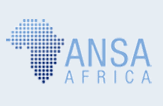Unesco: Marginalisation threatens EFA goals
06 May 2010
ThisDay
Abuja: Education for All (EFA) goals are largely threatened by the Nigerian government's failure to address the increasing rate of marginalisation in education, where 97 percent of poor Hausa-speaking girls received less than two years of education, with an increasing drop-outs rate of boys in the South-South and South-East and about 23 million adultsstill unable to read and write.
These and more are contained in the 2010 Global Monitoring Report (GMR), recently presented in Abuja. With the theme, Reaching the Marginalized, the report, released by the United Nations Educational, Scientific and Cultural Organisation (UNESCO) shows that Nigeria may not achieve the EFA goals by 2015, in spite of government's various educational policies and strategies. The report specifically stated that the goals of the Universal Basic Education (UBE) were at risk as a result of the multifaceted and interrelated challenges in educational marginalisation, adult literacy, inadequate funding and qualified education personnel, weak political commitment and inappropriate implementation of the UBE policy framework.
Director and Country Representative of UNESCO in Nigeria, Dr. Joseph Ngu said failure to address educational marginalisation driven by interacting layers of disadvantages in inequalities, stigmatisation, poverty, gender inequality, ethnicity, language, geographical location and physical disability contributed to the slow pace of EFA in the country.
Minister for Education, Prof. Ruqayyatu Ahmed Rufa'i, who was represented by the Director of International Planning, Mrs. Mabel Ozumba, explained that the report indicated Nigeria's slow pace at achieving the EFA goals and that the challenges of delivering mass literacy in the country was a formidable force that could derail the country's efforts at achieving the goals in 2015. She said government's pledge at the Dakar Framework of Action to explicitly identify, target and respond flexibly to the needs and circumstances of the poorest and marginalised in education had not been met and that financial commitment for EFA from donor agencies and recipient governments had also been disappointing.
In his remarks, the World Bank Senior Education Specialist, Dr. Tunde Adekola said the overall aid to education had been rising but commitments were falling short and had also recently stagnated. He noted that the country had refused to evolve a multilateral educational framework to accelerate the progress of the EFA goals, adding that the ability to sustain continued education and learning outcomes of the population in the schools were some of the real challenges of EFA.
UNESCO therefore advocated for an inclusive educational system that would increase access and improve affordability for the educationally marginalised groups to fast track the process of achieving the EFA goals in 2015, even as it stated that the challenges of illiteracy were still huge with a projection of 21 million illiterates in 2015.
Keywords: education, poverty, gender, Nigeria
|

